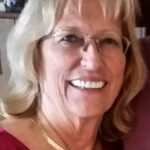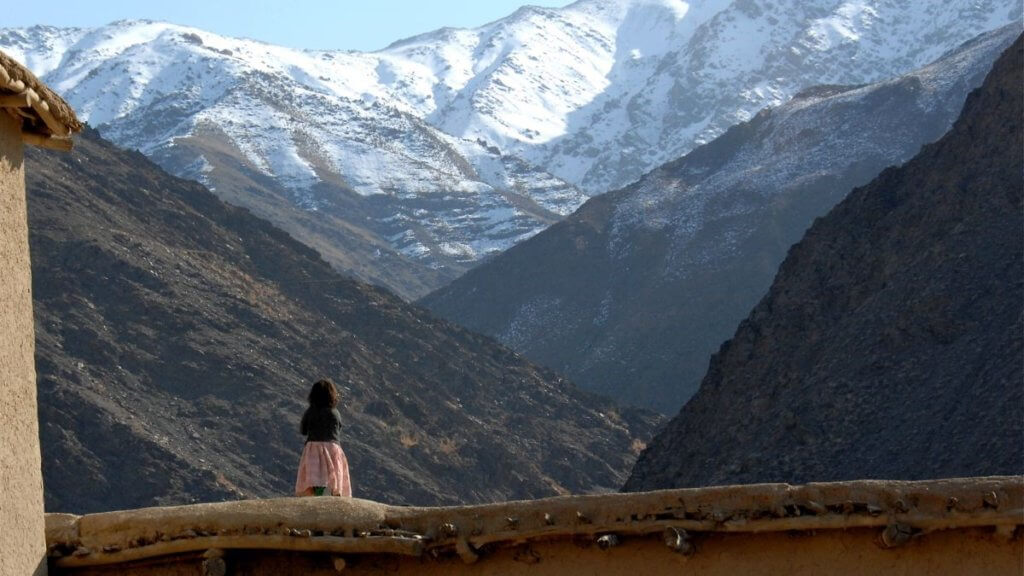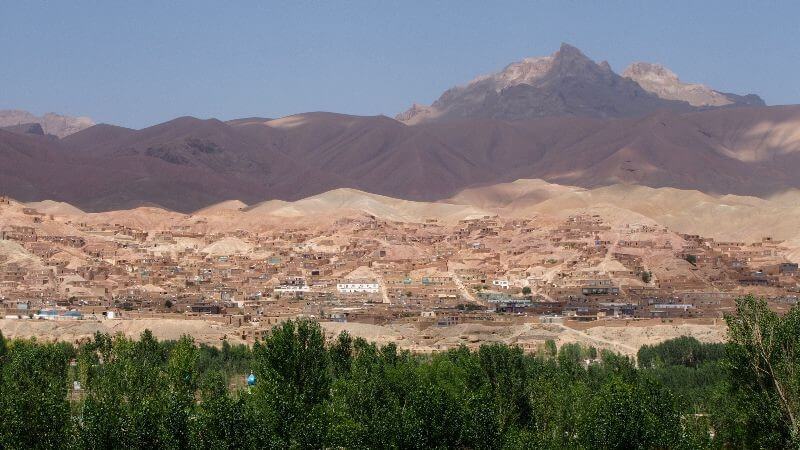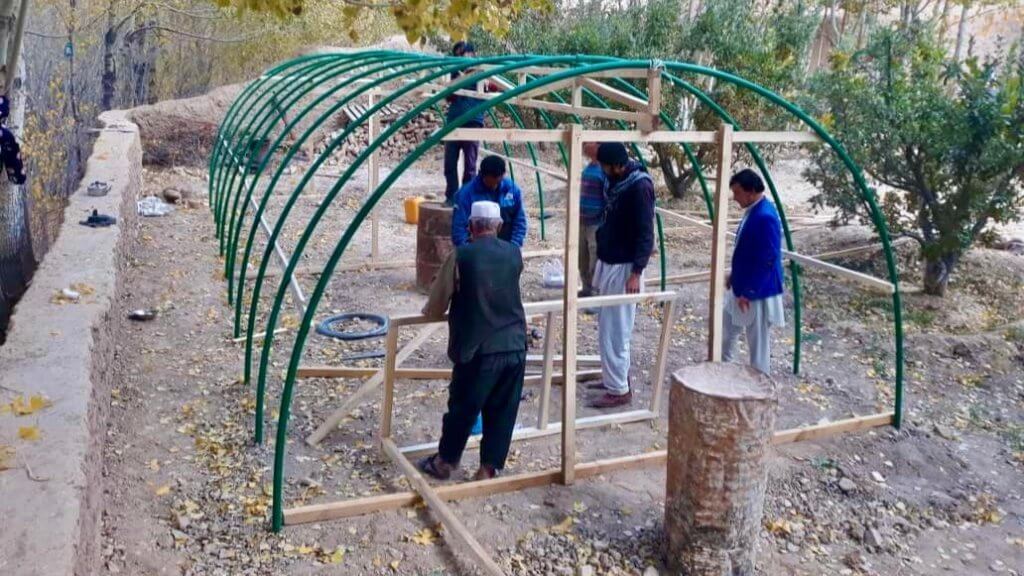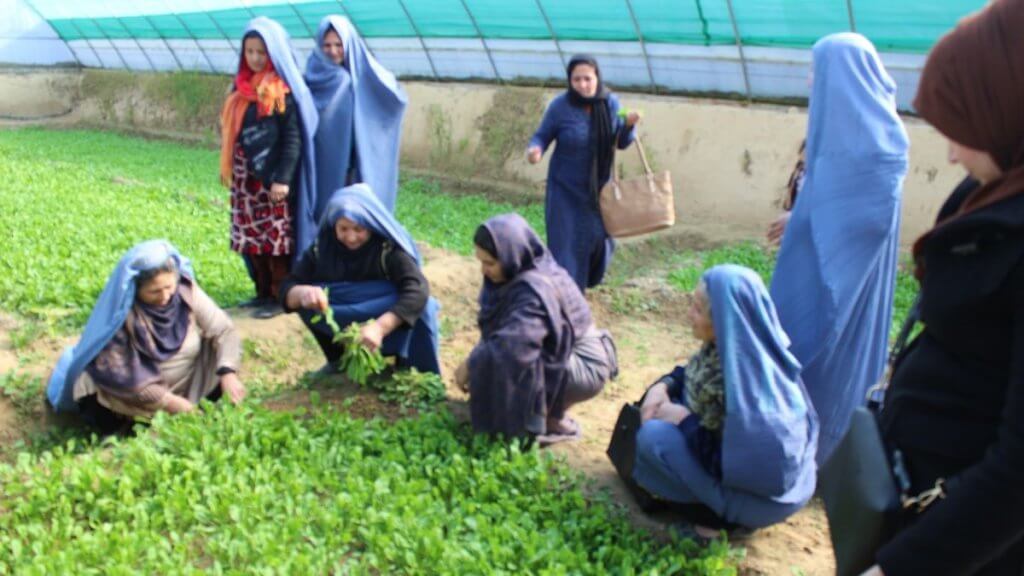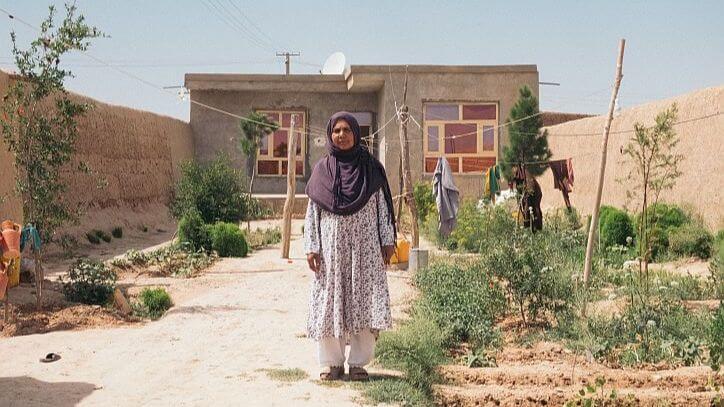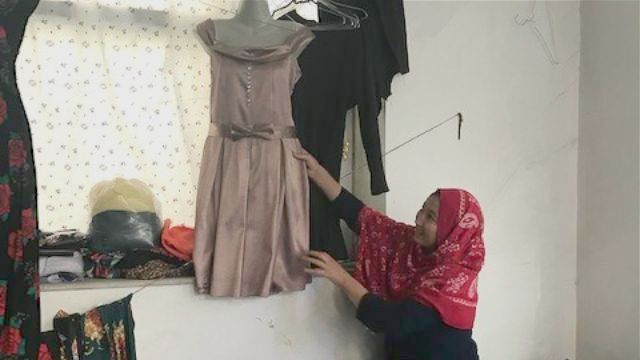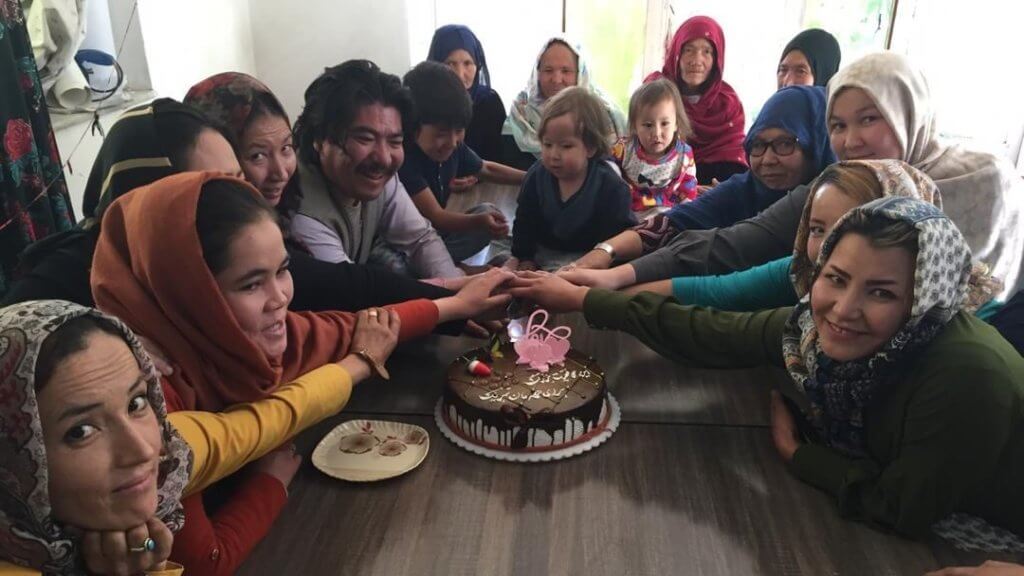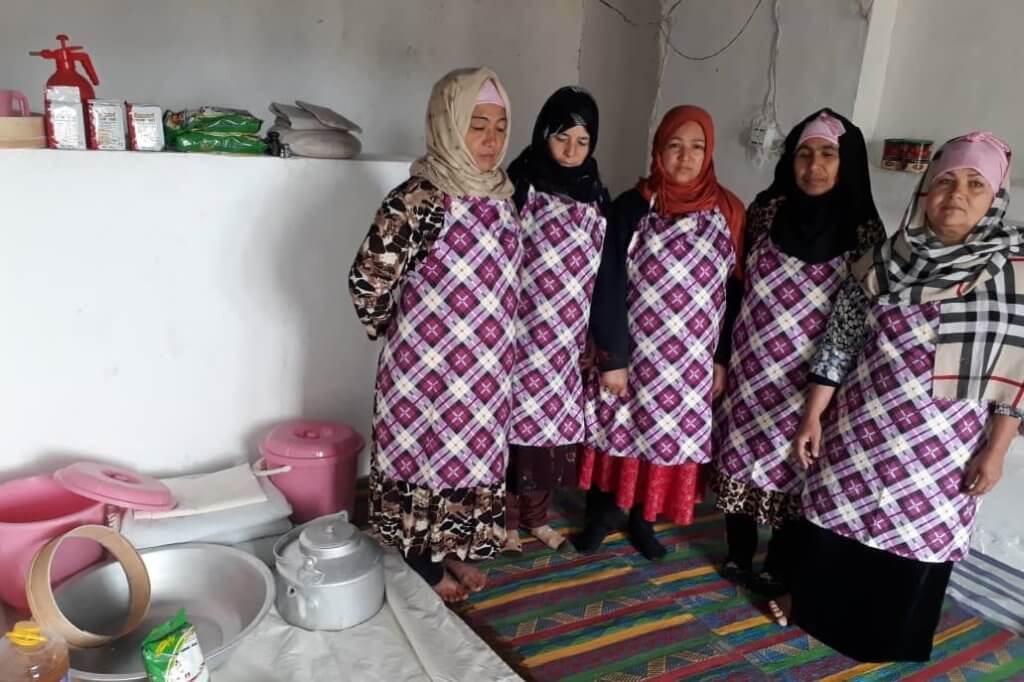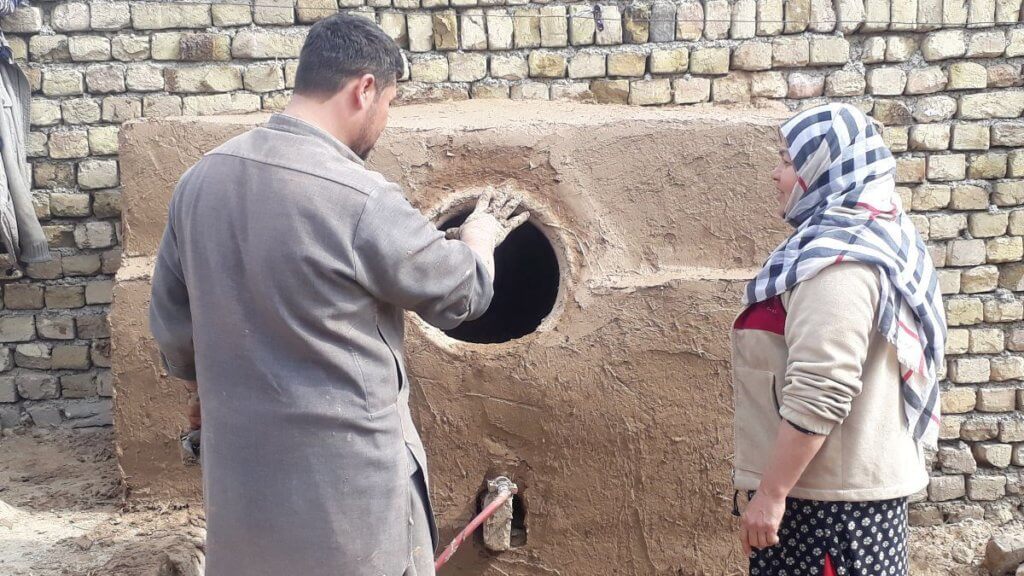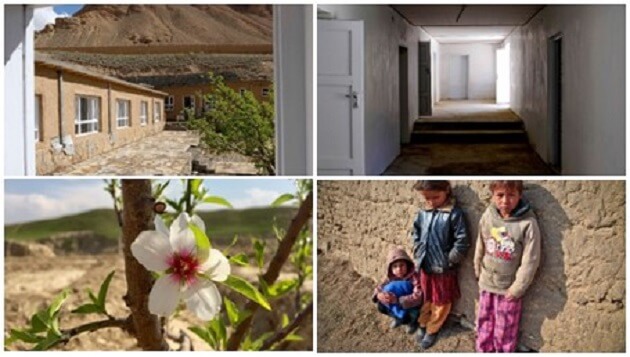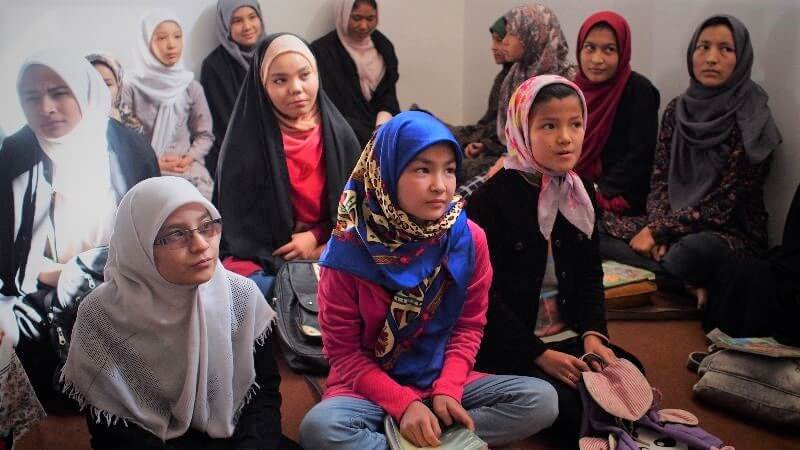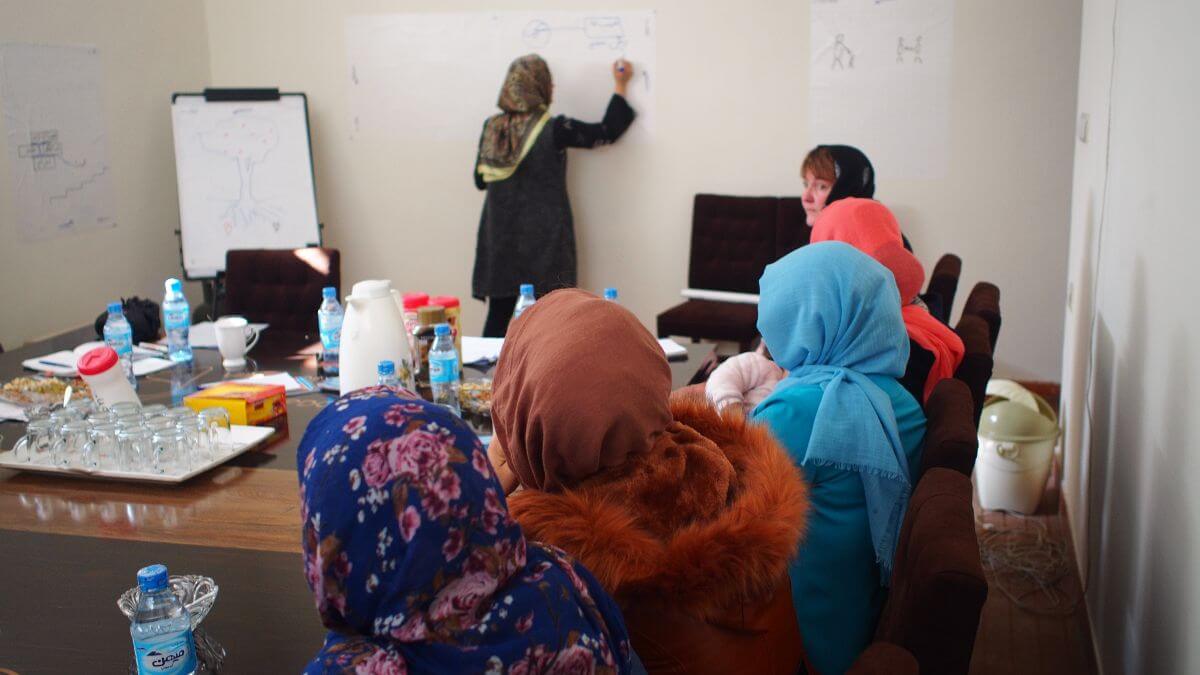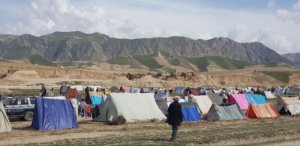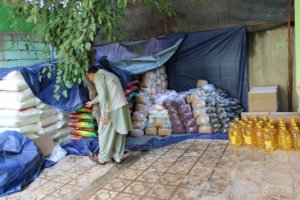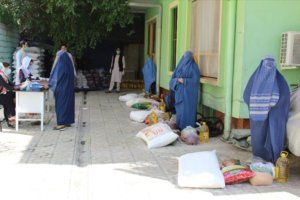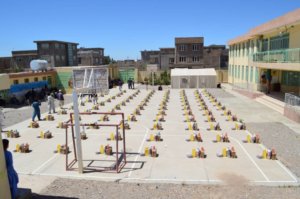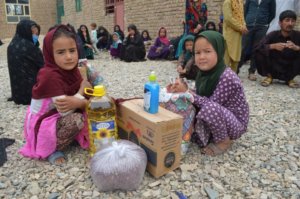My Family
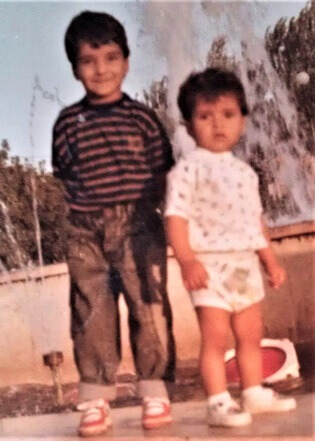
My younger brother and me in Herat
I was born in the city of Herat in Afghanistan, located close to the Iranian and Turkmenistan borders. My father is a doctor. I am the oldest of six, five brothers and one little sister.
One evening in 2010, my father was kidnapped by a terrorist group within the Taliban. They broke into our home and took him away by force. In the morning, they leveled accusations against him: He was working on a military base for the government and his salary paid by them, was not Halal (covered by Muslim law). They sent a message to our family, “Your father is with us, if you want him back alive, you must pay us $40,000.” At the time we did not have that kind of money, as my father had just spent his resources on building our family a new house. But, like a miracle, as neighbors and friends heard about our situation, during the next few days they came together and collected $35,000 among themselves which we offered as ransom.
The Taliban kept my father for three days while they tortured him, but eventually they accepted the ransom, although they misled my brother by guiding him to three false addresses before he finally found him. My father was badly hurt, but did survive. The two men in charge of the kidnapping were arrested by the government forces; one was sentences to 20 years, the other 15 years imprisonment. Shortly after that, our family began receiving threatening phone calls from the Taliban, even from Pakistan and Saudi Arabia.
They were ordering my father to go to the Judge and talk with him to insist that the two guys charged was a mistake, that they were innocent as a matter of wrong identity.
But the government knew they had the right men, as they were part of the Taliban leadership, so the kidnappers remained in prison. Our family kept being harassed, so we decided to move from our new home to another part of town, thinking we would be safer.
One morning as my father opened the front gate to go to work, he saw an object fastened to the gate. It turned out to be bomb. He contacted the authorities who came and deactivated it. Other times when I answered the phone the voice would say, “We will kill your whole family!” We contacted the Judge, the government authorities, the offices of the foreign NGOs and the United Nations office and asked for protection, but they all stated it would not be possible. Therefore we left our city and moved to another city, Mazar-e-Sharif, located near the borders of Uzbekistan and Tajikistan, hoping our lives would be better.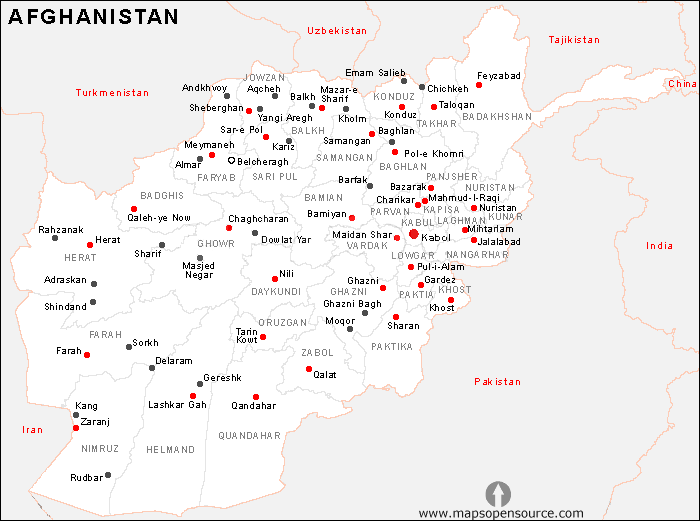
Studies and Work on Military Base
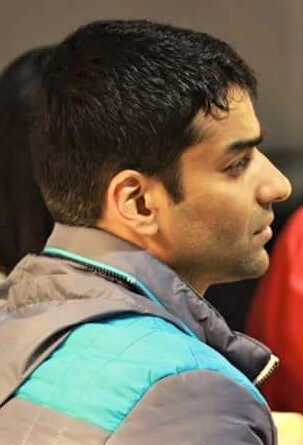 We had a financial problem since we needed to repay the funds our friends and neighbors had given us for the ransom. So, as I began my university studies, my father also found me a job at a very large ISO international military base containing foreign troops from many different countries. I was assigned to the Project German Training Team. The first three months I cleaned the barracks. Later, I was entrusted a better job as security guard inside the camp. I shared room with an Afghani German translator, and we became very good friends.
We had a financial problem since we needed to repay the funds our friends and neighbors had given us for the ransom. So, as I began my university studies, my father also found me a job at a very large ISO international military base containing foreign troops from many different countries. I was assigned to the Project German Training Team. The first three months I cleaned the barracks. Later, I was entrusted a better job as security guard inside the camp. I shared room with an Afghani German translator, and we became very good friends.
One day, one of my friend’s German trainers told him that his father would come on a visit for a week from Germany—could he spend some time with him and help with interpretation? He agreed and asked me to help when he took the guest around Kabul to show him around. On the last day, as we took the guest to the airport, we expected to be paid for our time, but to our disappointment, he did not give us any monetary compensation, he just handed my friend a book as a gift.
The Book
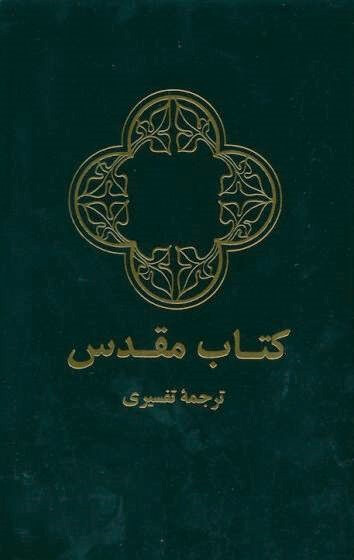
The Bible in the Farsi language
My friend was very angry, feeling he had waisted a whole week for nothing, as he was used to be paid well a professional interpreter. I suggested, perhaps the German had placed money inside the book, so when we arrived back to our room, we carefully examined it, but found nothing, so my friend threw the book on the table and walked away. I had a thought, “What if the book is of more value than money?” We removed the top book jacket, and to our horror found it was Injeel (the Bible). “Oh, no”, my friend exclaimed, “this is not a gift, this is not a book – it is a bomb! If anyone find we have a Bible in our room, we will be killed before we can explain where the book came from!” In Afghanistan it is a death sentence to have a Bible, as all Muslims are taught the Bible is corrupt and will pervert the reader. We were very afraid that night, so we hid the book. We were curious, so after a week, I suggested we read the book to find out how the Christians pray. My friend opened the book and began reading from the beginning. The Old Testament with the story about the creation was very interesting, as much is the same as in the Qur’an, although the names and places are different. In the Qur’an a verse states: ”I believe in God, I believe in all the books of God which tells us about Injeel I believe in the Prophet I believe in the day of Resurrection”, so I told my friend, “Since it mentions Injeel, it’s okay to read this Bible, even though it is corrupted.”
Comparing the Bible with the Qur’an
After 4-5 months of reading, we came to the New Testament. My friend read the Gospel of John 1:1, “In the beginning was the Word, the Word was with God, the Word was God!” That reminded me what I had read as a child in the Qur’an’s Book of Miriam (Mary) that Gabriel, God’s angel, came to Miriam with the Word of God, that God’s Spirit would come and give her a son, who would be called Isa (Jesus).
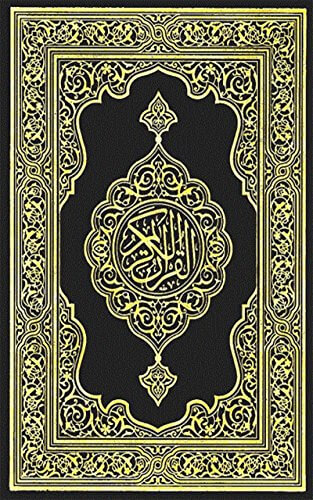
The Qur’an in the Arabic language
This became very interesting as we saw the connection between the two books. We decided to begin comparing the Bible with the Qur’an. Since we did not know Arabic very well, I was able to get the Qur’an in my own language, Farsi. At night after everybody was asleep, my friend would read the Bible, I would read the Qur’an, and we compared the two.
This continued till I found written in Surah al-Ma’idah Third Book of Qur’an all the miracles Jesus did. It also states that He was not crucified but was taken into heaven and will come back on Judgement Day and judge the infidels. It hit me that it’s neither Allah, nor Muhammed who will come and judge on Judgement Day—but Jesus! Another story in the Qur’an impacting us, was when Muhammed was ill in bed, and his disciples came to him and asked him, “O, Prophet, what will happen to you when you die?” Muhammed answered, ”I don’t know where I am going – heaven or hell.”
So—all this time we had been following the Prophet who is promising us Heaven, but does not have a clue where he is going himself? On the other hand, in the Bible’s New Testament, we read that Jesus not only promises us eternal life, but He was resurrected and ascended into Heaven where He now sits and prays for us. Muhammad also writes that, if you have doubt about the revelations, go and ask the people of the Book, which means Christians and Jews, because they have the Injeel, which means the Light.
At this point my friend said, “Much which is written in the Qur’an is in the Bible, but in the Bible Jesus says we shall love another, even our enemies.” As an Afghan-German interpreter, my friend would go with many troops on different missions in Afghanistan. One day, the Taliban captured one of his close friends and cut his head off in front of his eyes, and while they did that, they were reading words from the Qur’an. He thought, “I am tired of killings and hatred. I think I found a new way. I don’t know what or how I should do this.” So, he simply prayed, “I believe you Jesus, I believe the Bible, please forgive my sins.”
Finding a New Way
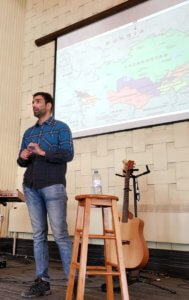
Bahram sharing his testimony
After that, my friend told me he had now found a new way. I watched him for a week to see if he would be punished or die—instead I saw him so happy and radiant, “I feel free and I have now contact with God, I can talk directly with Him without having to read in Arabic.” After a while, I wanted the same experience. I asked Jesus to come into my life. For one year, we lived in Afghanistan as believers. No one knew, which was okay.
On October 1, 2013, we were praying late and my friend forgot to hide the Bible. One of our coworkers found it. He reported us to his father, who was one of the leaders at the local Mosque. They visited my friend’s mom, threatened her, and had her call us and command us to go to the Mosque to repent.
The Escape
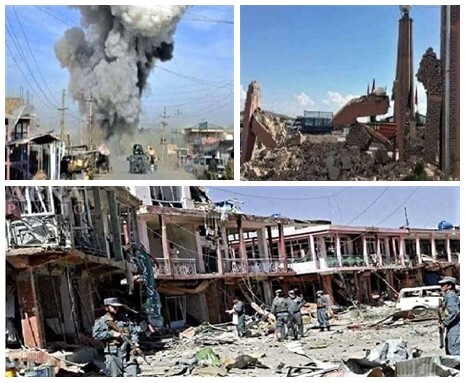 We knew they would kill us, not only because we had changed religion, but also because we had been working with foreigners at a military camp. We decided to escape. We packed up some clothes and money and left during the night for the neighboring country, Tajikistan. At the border town we hid in a hotel for three days, waiting for a friend to get us our passports and a visa to get into Russia. But it was too late. The Taliban was looking for us and had blocked our passports. They published our pictures on the local TV news, everybody was looking for us.
We knew they would kill us, not only because we had changed religion, but also because we had been working with foreigners at a military camp. We decided to escape. We packed up some clothes and money and left during the night for the neighboring country, Tajikistan. At the border town we hid in a hotel for three days, waiting for a friend to get us our passports and a visa to get into Russia. But it was too late. The Taliban was looking for us and had blocked our passports. They published our pictures on the local TV news, everybody was looking for us.
Finally, we came across a taxi driver who was willing to drive us to the Russian border for $1,500. We gave him almost all the money we had, and he drove us across the Afghan border into Tajikistan, and continued driving for one day till we crossed the Kyrgyzstan border. There he stopped and demanded more money—which we did not have—to drive us all the way to Russia. He dumped us in the middle of nowhere with no money, no food, no visas, no passports.
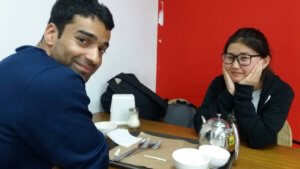
Bahram with fellow student in Bishkek, Kyrgyzstan
Another taxi drove by. For the remainder of our money, $55.00 he picked us up and drove us a few miles and dropped us off at the UNHCR (refugee branch of the U.N.) There, we were told they could not help us because Kyrgyzstan is a Muslim country. We would be sent back to our country. They put us up for two weeks in a shelter, but without food. Eventually, they contacted the Kyrgyz immigration authorities and they brought us to the capital of Bishkek and asked us to go to the Afghan Embassy and get identification cards, which we did not, since they would have reported us back to the Taliban, and we would have been deportet back to Afghanistan.
The Miracle of Healing
The first night in Bishkek, we sat on a bench, and suddenly I had excruciating, unbearable pain in one of my kidneys. My friend thought I was dying and tried to get me into a hospital, but since I had no money, they refused to treat me. I don’t know what happened, but I began to pray for myself, then my friend prayed for me. I fell asleep, and when I awoke, there was no more pain as I passed a kidney stone. That was the first miracle I experienced!
In Bishkek, we were passed around to different agencies, from the UNHCR, the local immigration office, the Human Rights office who gave us a place to stay, but again without food. We did not know anyone nor speak the language.
The Waiting Time – Learning, Growing, Maturing in Faith
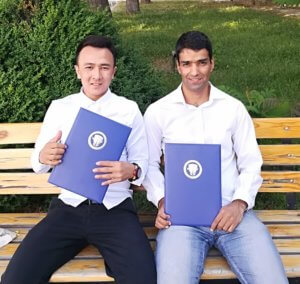
Graduation with Diploma from Keiin College in Bishkek.
We thought, perhaps we should look for a church, and we found an Russians Orthodox church. When we went inside, we met another Afghan man and woman who also were refugees. They invited us to their home and fed us, and we stayed there for 10 days. We learned that a kind woman in America, R.K. from The Bridge International was helping them, so we were introduced to her on Skype. R.K. also helped both my friend and me, and began regularly sending funds through the Afghan we had met, to help support us. We learned later, that this Afghan posing as a Christian brother was dishonest. He withheld the money R.K. sent to us and took it for himself, then lied to her that we had received it. She stayed in touch with us and tried to help us in our situation.
R.K. contacted German officials, informing them that one of their translators was stranded in Kyrgyzstan. They responded, so in 2014, my friend got a visa to move to Germany, where he is doing well. I was refused the German SIV, so I remained in Kyrgyzstan. In the Spring of 2014, R.K. came to Kyrgyzstan, where I met her in person.
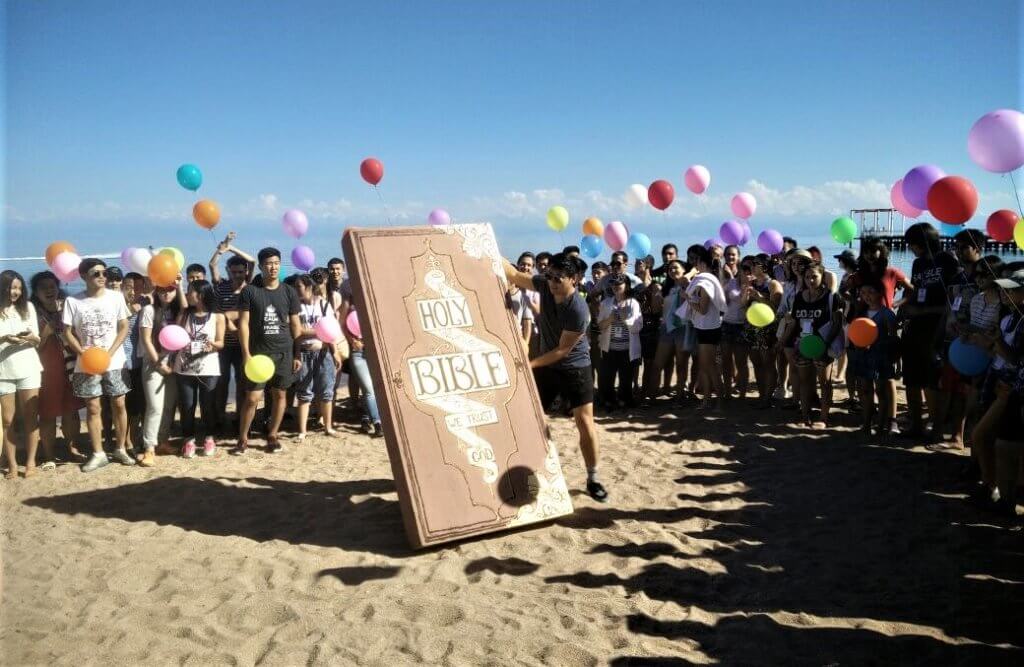
Christian Student Conference in Bishkek
I lived in Kyrgyzstan another five years, where God opened many doors for fellowship—via the International Church, foreign mission organizations, individual missionaries and local believer who demonstrated the real love of the Body of Christ. Several assisted with the college tuition, and R.K. also helped me during this time. I graduated with a degree in Business Management. 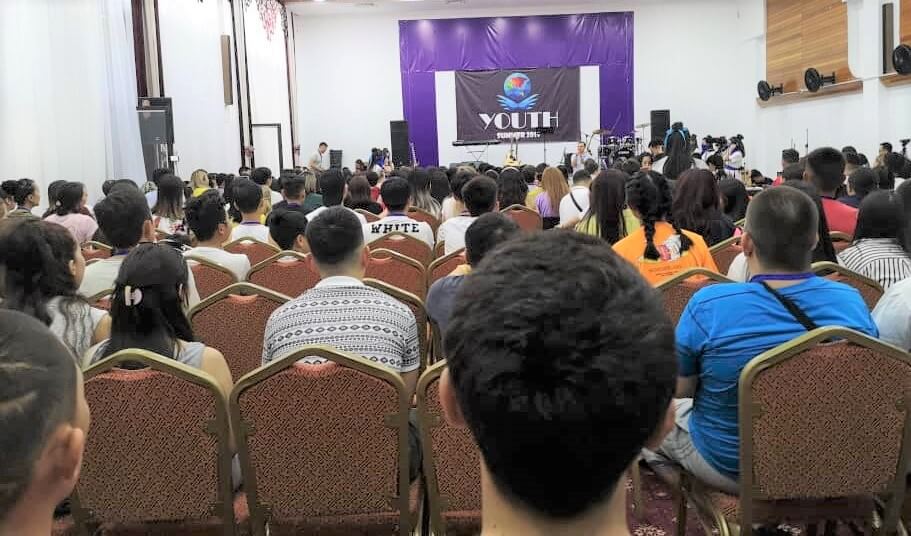 Simultaneously, I studied the Word of God, and began sharing my faith among Muslims from many countries using the Qur’an as a door opener to point to ISA—Jesus, God’s Son, the Savior of the World! I became the leader of the International Christian Student Fellowship. I know God kept me in Kyrgyzstan for those years to teach, train, and mature me in the faith to be a witness for Him to my people, and Muslims in other places!
Simultaneously, I studied the Word of God, and began sharing my faith among Muslims from many countries using the Qur’an as a door opener to point to ISA—Jesus, God’s Son, the Savior of the World! I became the leader of the International Christian Student Fellowship. I know God kept me in Kyrgyzstan for those years to teach, train, and mature me in the faith to be a witness for Him to my people, and Muslims in other places!
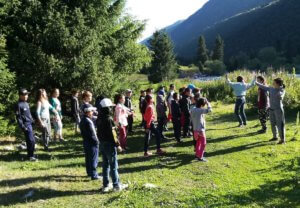
Leading Youth Camp in Kyrgyzstan
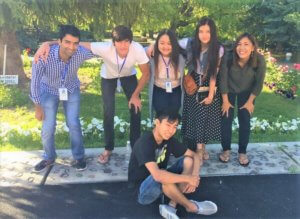
Christian Fellowship in Bishkek
Immigration to Canada
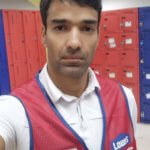
My first Job in Canada
An American Missionary, James Hutchington and his family, helped me a lot. He presented my case to the pastor of a Canadian church, who was visiting Bishkek. After being interviewed, they decided to sponsor my immigration to Canada. Through a long, difficult process, in 2019 my visa was approved. I moved to Manitoba where I now live, work, fellowship, and learning the Western way of life!
FROM R.K.’s CORNER
At this moment in time, you need no introduction to the nation of Afghanistan. Due to the retreat of American troops and the fall of the country, including the capital of Kabul, to the Taliban, an internationally recognized terrorist group, the news media on a daily basis are filled 24-7 with reports from the tragic events unfolding in Afghanistan.
In the mid 1990’s, I had the privilege of personally becoming acquainted with a community of 2000 Afghan refugees living in Kazakhstan. The Bridge helped them establish a grade school for their children, where they were taught in their own language, through their own culture while living in diaspora. I came to love this beautiful, poetic mountain people, tragically trapped today by the evil ideology of Taliban’s extreme Islamic terrorism.
In 2013, I was introduced to four Afghan refugees who had fled Afghanistan to Bishkek, Kyrgyzstan. The Bridge helped them while waiting to settle elsewhere.
Bahram Aira is one of them, now living in Canada. He has a powerful testimony which might help us understand the reality of what is happening in his home country; also how the power of God’s Word enlightens and transforms a soul and heart, even in a follower of Islam!

